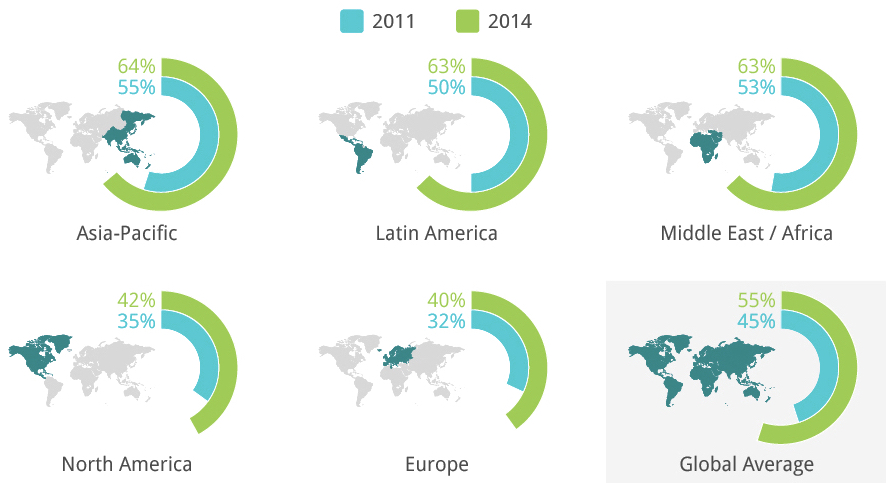Despite the constant stream of negative news, with stories of uncertainty and anxiety broadcasted every single day, the world is arguably in a much better position than it has ever been before. Billions of people around the world have been lifted from extreme poverty and enjoy better access to healthcare, technology and professional opportunities. Global progress and innovation has become a daily occurrence, and yet some people are still being left behind.
While wealth and prosperity have increased across nations, groups are becoming divided within nations. Rising income inequality has become a major driver of social unrest and technological innovation is making matters worse by displacing more jobs. Politicians are struggling to lead efficiently, distracted by the rise of populism and their limited ability to respond quickly to global issues. This leaves a space for global businesses to take responsibility for social, technological and economic development through purposeful action.
Businesses must take an active stance in the world to generate true and long-lasting value, shaping the conditions for true success rather than merely reacting to the whims of current trends. True success will be achieved through securing the conditions of sustained and mutual prosperity. Only then can we lay the foundation for a more inclusive model of global economic development. By remaining deeply embedded in society, businesses can offer viable and profitable solutions to the world’s most significant challenges.
Capturing Value in Three Key Areas
Source: McKinsey Insights (2016)
Sustainability concerns can impact as much as 70% of total corporate earnings, according to research by McKinsey & Co. Since 1994, Dow has invested nearly $2 billion in improving resource efficiency. This $2 billion invested in sustainability has saved nearly $10 billion in reduced energy and wastewater consumption in manufacturing. In 2013, General Electric (GE) had reduced greenhouse gas emissions by 32% and water use by 45% compared to 2004 and 2006 baselines, respectively, resulting in $300 million in savings. Nike introduced the $1 billion-plus Flyknit footwear line, which uses a specialized yarn system that is cheaper to produce and reduces waste by 80% compared with regular footwear.
Choosing sustainability also drives profit and innovation. The world’s most sustainable companies have experienced significantly higher sales growth, return on assets, profit before taxation and cash flow when compared with traditional firms over the last decade – some by a factor of six! GE, Toyota, Nike, IKEA, Whole Foods, Unilever, Tesla and Natura have all outperformed their non-sustainable counterparts with a combined revenue adds up to $100 billion a year, a figure greater than the GDP of 70% of the world’s economies combined! The United Nations estimate that the market for sustainable businesses will grow to $2.2 trillion by 2020.
Consumers are Happy Paying a Premium for Sustainability
Source: Statista (2015)
Sustainability in business is not just socially responsible; it is essential for mankind’s survival and global prosperity. A sustainable business is one that strives to meet the triple bottom line – ensuring positive and profound impact across society, the environment and the economy. These efforts offer clear results in performance, offering value for all stakeholders, including employees, shareholders, supply chains, civil society and the planet. They create shared value by identifying and addressing social problems that intersect with their business and their surrounding environments.
This is why we at Primal Group have ensured that sustainability remains at the very forefront of our business model. By focusing on the solutions needed to sustain a global population racing away to 10 billion by 2050, we are committed to ensuring environmental protection, social responsibility and value creation for generations to come.

